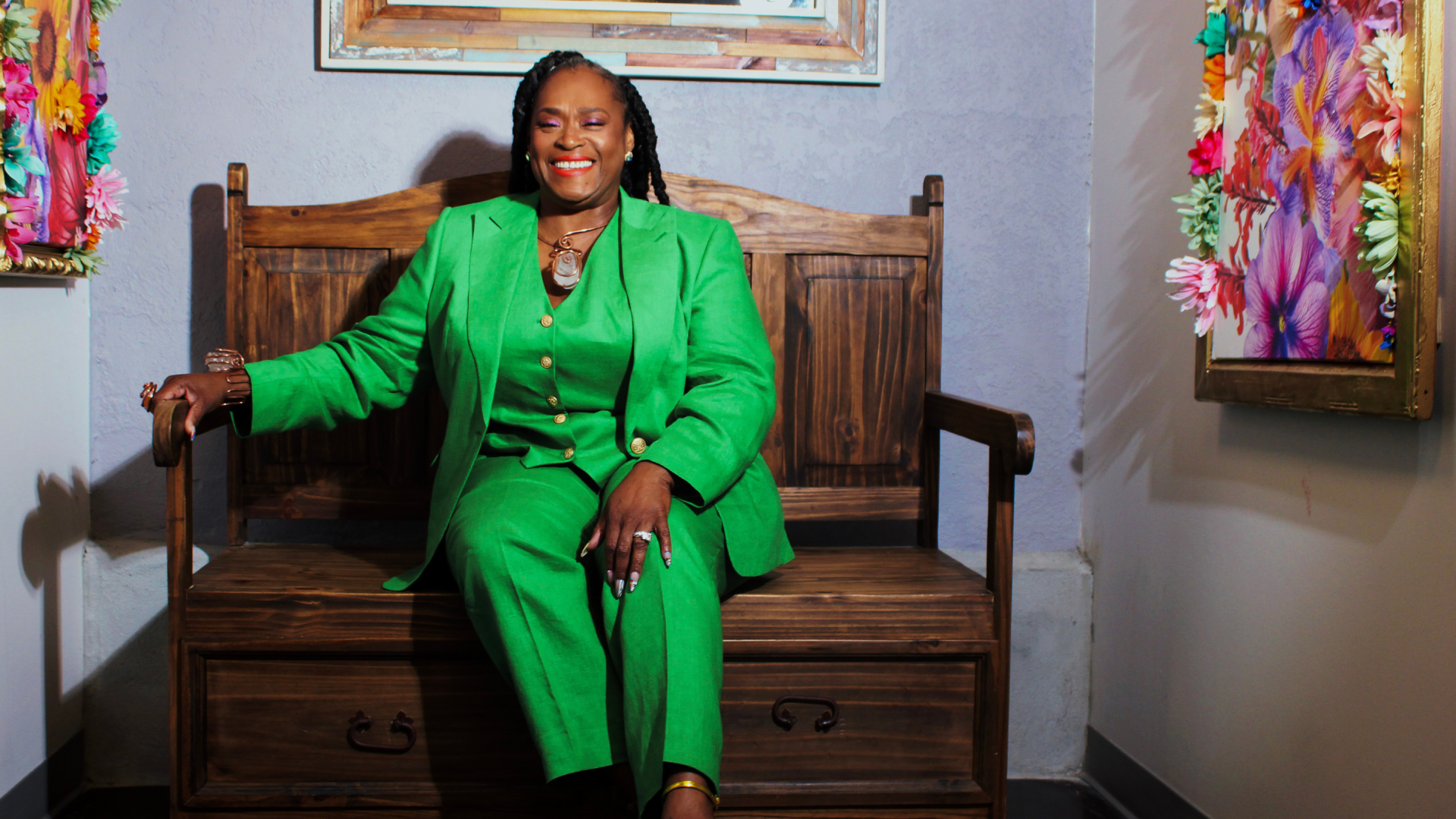
Deon Haywood will never forget the woman who took a chance on her. This woman hired her for her first nonprofit job when Haywood was struggling to figure out her path in life. “I was a teen mom, and she asked, ‘Would you like a job?’ I was like, ‘Me?’ And she said, ‘Yes—I see something in you.’”
Haywood took those words to heart, and they became the foundation of her life’s mission of “working with women that people want to throw away.” Instead, Haywood gives those women what they have often been deprived of: visibility. And it starts with her seeing something in them.
The New Orleans native, activist and community leader has dedicated her life to advocating for the rights of marginalized communities in the South. For more than 30 years, she has fought for the rights of Black women and girls, as well as other disregarded groups—including poor and working-class individuals, sex workers, substance users and LGBTQ+ communities.
As a wife, mother and grandmother, Haywood brings a deeply personal perspective to her activism. She understands the importance of creating a more just and equitable society for future generations. Her work has been invaluable in challenging systemic inequalities, and in advocating for policies that uplift and empower those who are often overlooked or undervalued.
“I believe that shame and stigma are what’s killing us,” says Haywood. “Be it health issues, HIV, mental health, whatever it is, we’re normally so ashamed to say that we are dealing with these things that we don’t talk about it, and we die in silence, or we lose ourselves. I wanted to help change that.”
Haywood co-founded Women With a Vision (WWAV) with a group of other Black women in 1989 in response to the devastating impact of HIV/AIDS in Black communities. She became WWAV’s first full-time employee in the early ’90s—and led the organization with a focus primarily on HIV prevention, reproductive justice and harm reduction for substance users. “For the women who come through my office, I tell them, ‘I see you; there’s something special in you,’” she says. “I need them to know that someone cares.”
In 2005, in the aftermath of Hurricane Katrina, Haywood says that WWAV recognized it had to expand as an organization. She says that much like the levees failed Louisiana during the hurricane, the system has failed Black women—often incarcerating and punishing the vulnerable but doing little to address root problems.
“We continue to throw certain populations and certain subgroups of people in our community away, and push them to the side, and not discuss the issues or not make space for them because we don’t like the way they live,” Haywood says. “The thing is, we need to be talking to every woman, because every woman is our responsibility. Am I my sister’s keeper? Yes, I am. Am I my queer sister’s keeper? Yes, I am. As somebody who identifies as a Black lesbian, I don’t have the privilege of leaving anybody behind.”
Now in its 35th year, WWAV is widely regarded as a leading national voice fighting the criminalization of Black women and girls in the South. Human rights, sex-worker’s rights, reproductive justice, voting rights and ending mass incarceration are among its programs. The organization achieves its mission chiefly by focusing on grassroots advocacy and support. Haywood’s leadership as the executive director has been instrumental in addressing a wide range of critical issues affecting our communities.
As part of Louisiana’s Ending the HIV Epidemic initiative, the WWAV team advocates for people living with HIV/AIDS and communities that have been disproportionately affected by it. In addition to fighting for improved access to care and prevention services, they aim to end the stigma associated with the disease and systemic quality-of-life barriers across the state.
Decriminalizing sex work is another of WWAV’s top priorities. Through its No Justice campaign, the organization fought to overturn a 200-year-old law that required sex workers to register as sex offenders—and they won. WWAV has also helped to defend abortion rights; registered thousands of marginalized Louisiana residents to vote via engagement initiatives; and spearheaded a Young Women With a Vision program, to help secure the next generation. WWAV also helms the only non-court-based community-diversion program in New Orleans.
“I can remember some of our diversion programs where we did things like vision boards, and we had women in their thirties say, ‘Nobody ever asked me what I wanted.’ Or had a 21-year-old say, ‘Nobody ever asked me what I wanted to be, what my interests were,’” Haywood states. “These women needed to know that we see them and their potential, and we care,” Haywood adds that the joy in her work comes from witnessing the triumphs of those who have been historically overlooked by society—whether it’s seeing formerly incarcerated women thrive, providing opportunities for women in diversion programs to successfully avoid pitfalls and obtain employment or witnessing the excitement of older women casting votes for the first time.
Each moment of progress represents a victory in Haywood’s eyes. Her dedication to creating opportunities for the marginalized and disenfranchised and amplifying the voices of those who have too often been silenced reflects a deep commitment to justice and equity for all. “We can’t ignore the people in our community,” Haywood says. “We need each other. When people talk about how we save our children, my answer is by saving their mothers.”
This story originally appeared in the July/August 2024 issue of ESSENCE magazine on newsstands on June 25.






